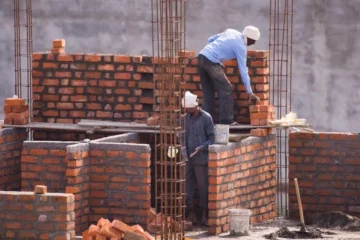Dombivli -based A. Gandhi is finding it difficult to sell his two bedroom flat, after the central government demonetised the Rs 500 and Rs 1000 notes in November. “My flat has been on the market for nearly four months and I had got to the point of signing the agreement papers with a buyer, but now the buyer has backed out,” Gandhi says.
Gandhi had planned to get 30% of his selling price in cash. Now, his buyer cannot arrange for that much cash and Gandhi would rather not accept it as a cheque. Because the point of asking for cash is to keep that part of the transaction off the books, avoid paying capital gains tax on it, and usually recycle the funds by buying another flat.
This off-the-books cycle is part of the parallel economy that the government is trying to crack down on by demonetising the large notes.
Read: Demand for housing likely to go up to 42 lakh units for 8 cities in 5 years
There is some debate about whether this goal will be achieved. Many realty analysts think the impact in the long run will be positive — prices could come down to more realistic levels, and there could finally be more of that much-needed transparency in the market, especially if the Real Estate (Regulation & Development) Act, or RERA, comes into force soon and buttresses the effort begun by the demonetisation.
For now, the market is in suspended animation.
“Immediately after the government’s announcement on November 8, property dealers like myself started getting calls from their clients to put ongoing deals on hold,” says Thane-based broker Bharat Malik.
Anuj Puri, chairman and country head at real-estate consultancy JLL India, estimates that sales in the secondary residential market will drop by 30% to 35% over three months.
In the Gandhi case, for instance, three transactions have in effect fallen through — since he was planning to use part of the proceeds from his flat to buy two others.
“The demonetisation has affected the secondary sales market much more than primary as there is traditionally a larger cash component involved in the latter,” says Puri. “In the budget resale housing segment, the cash component was usually in the tune of 30% to 40% of total sale value. In the luxury segment, the cash component was often 50% or more as many — though by no means all — high-networth individuals (HNI) would use this as a way to park untaxed monies.”
The Indian real estate market, which is largely fragmented and unorganised, has had a reputation of being a safe haven for black money, and therefore, we expect to see impact on the sector, adds Anshul Jain, managing director of real-estate consultancy Cushman & Wakefield India.
Read: Price gap to close between resale, primary real estate markets after demonetisation
“These markets will become more illiquid for a period of time, until the market adjusts to a new normal. We can expect to witness some amount of correction in real-estate prices in markets where substantial speculative investments have been made by individuals through their black money,” Jain says.
Primary markets in Tier 2 and Tier 3 cities and in emerging corridors on the fringes of the metros are likely to take the bigger hit.
“In the Mumbai Metropolitan Region (MMR), there are many areas in Navi Mumbai and Thane and many emerging farflung suburbs that have already been impacted more than other areas, largely because these markets are full of small developers who expect larger cash components,” says Puri.
A FRESH START?
Some builders say they are looking forward to operating in a more transparent industry.
“Some fly-by-night operators have exploited home buyers. This should not have happened. That is where RERA will come into picture. It will protect home buyers. Regulators in sectors like power, telecom and equities have helped. The same will happen in real-estate too,” says developer Niranjan Hiranandani.
Puri is optimistic about the sector’s future too. “So far, the Indian residential property market has in many ways worked against consumers, as their interests were not adequately protected. They have often fallen prey to lopsided sale agreements, delayed project delivery and changes in apartment sizes, specifications or amenities without intimation. RERA will change all this and make the property market consumer-friendly,” he says.
Already, though, the cycle seems to be starting anew, if on a wobbly footing.
Read: Online search for property dips by 15% to 20% after demonetisation
Ajay K is trying to sell three flats in Kalyan and says he has already found a buyer willing to pay 50% in cash.
“This buyer is a businessman who earns almost entirely in cash,” he says. “But I am not going to accept it now. We are right now in the situation where I am afraid of accepting cash and he is afraid of paying the full amount in white as it will invite the attention of income-tax authorities. The deal fell through.”
The question is, will the new normal be a mutual wariness and a tendency towards ‘allwhite’, legitimate transactions, or a cooling off period followed by a return to the old ways.





